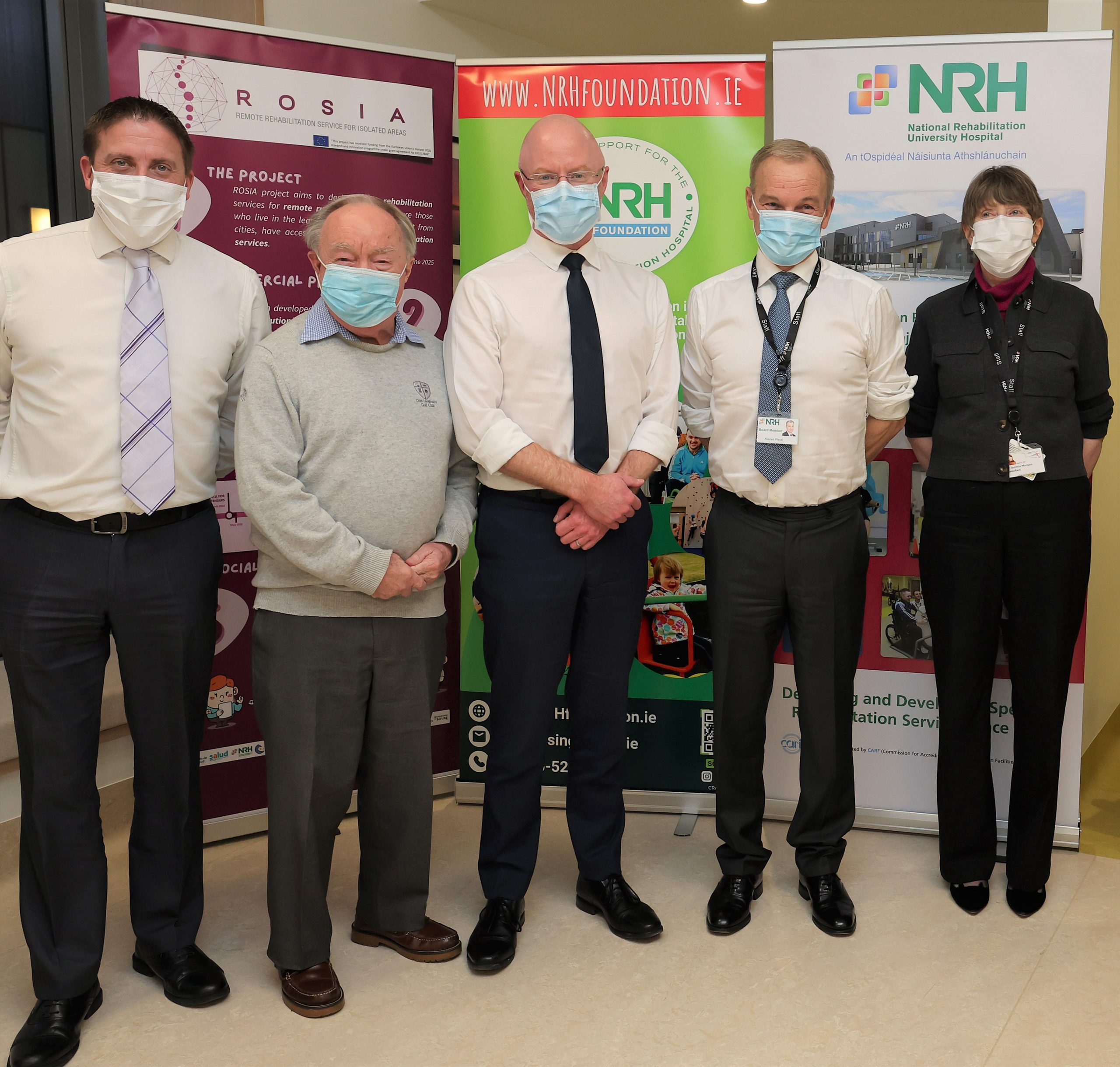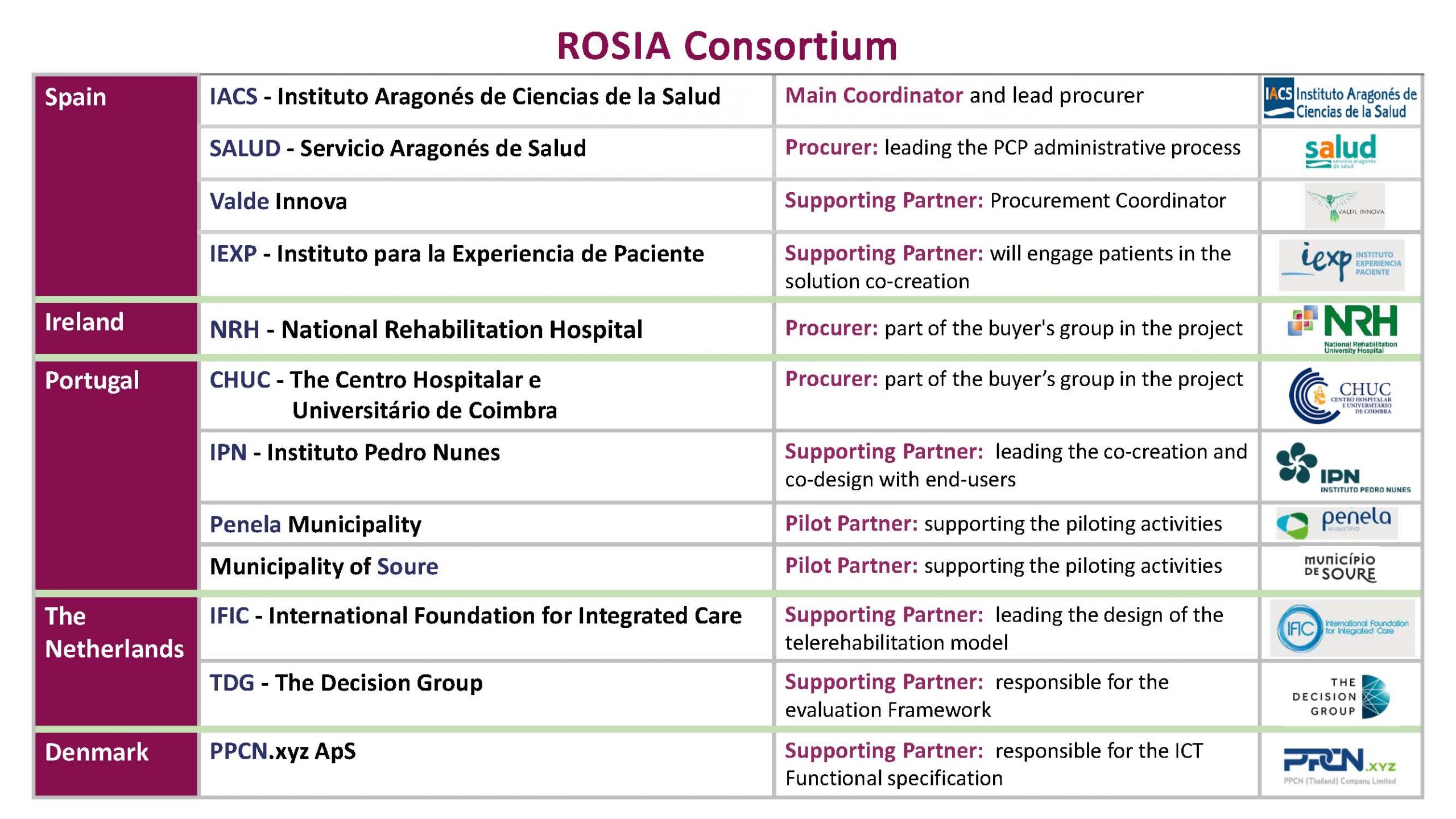ROSIA Project – Phase 1 Successfully Completed
March 29, 2023
ROSIA (Remote Rehabilitation for Isolated Areas) is a project co-funded by the European Union’s H2020 research and innovation programme under the pre-commercial public procurement (PCP) instrument and agreement GA 101017606
- ROSIA-PCP announces the successful and promising closure of Phase 1 of the European precommercial public procurement project ROSIA
- Pre-commercial public procurement is a phased R&D competition in which several public administrations define a common need not covered by the market.
- ROSIA aims to unlock the telerehabilitation market through the development of an innovation ecosystem that enables the integration of public health services with patient self-care and self-management tools and community services.
Phase 1 aimed at the detailed design of the solution, phase 2 will consist of the development of the prototype and phase 3 the validation of the complete solution.
ROSIA has successfully completed phase 1 of the competition that started on 28 October 2022 with the publication on TED (Tenders Electronic Daily) of the five winning bidders from the ‘Open Tender’ process.
All five have successfully completed this stage with proposals based on open platforms, cutting-edge technologies and highly innovative approaches that bring us closer to data-driven health, the use of sensors and the enormous potential of mobile phones.

Pictured at the recent visit by the Minister for Health to the NRH. L-R Cormac Devlin, TD; Henry Murdoch, Chair NRH Foundation: Deputy Stephen Donnelly, Minister for Health; Kieran Fleck, Chair NRH; Prof Jacinta Morgan, Clinical Director NRH
The three public bodies participating in the ROSIA project procurement team are the Aragonese Health Service, the National Rehabilitation Hospital (Ireland) and the Centro Hospitalar e Universitário de Coimbra. The Instituto Aragonés de Ciencias de la Salud (IACS) is leading the project and executing the joint procurement procedure on behalf of all three organisations. The five contractors involved in this phase are:
– RAISE is the name of the proposal led by the Greek entity CERTH (Centre For Research And Technology Hellas), which also integrates the Spanish TELEVES, IBV and Vidavo, the Greek Research Committee University Ioannina (UoI) and Trilateral Research, and the Portuguese INESCTEC.
– The Spanish technology centre Eurecat is leading the PROHAB proposal, which also involves two other Spanish entities, the SME Doole Health, and the Germans Trias i Pujol research centre (IGTP).
– The Spanish companies Bahia Software and Rehametric are presenting under the ULTREIA proposal, led by the former.
– The most international consortium is led by the Greek technology centre; Foundation For Research And Technology Hellas (FORTH) and includes the SMEs DyCare (Spain), Konnektable Technologies (Ireland), LifeCharger (Italy), Wellics (UK); the companies PDMFC Group (Portugal) and Uni Systems (Greece).
– The fifth successful bidder is the Spanish company GMV, which submitted Rehabilita+.
The first implementation phase lasted three months and each contractor signed a €20,000 contract to develop the design of their proposed solution. During this period, a team made up of representatives of the three purchasers closely followed the evolution, resolving doubts and giving recommendations to the contractors for the alignment of their proposals with the shared needs of the purchasers. To access the next phase, these contractors will have to go through a new evaluation of their proposals, in which only three of the contractors will be selected and will have a budget of €300,000 (including 21% VAT) each, to be carried out between March-April 2023 and February-January 2024.
The results obtained and the lessons learned during the project execution will help the deployment of a telerehabilitation solutions platform, easily integrated into any health service in Europe. In the future, the applications and devices of the ROSIA Catalogue will be connected to this platform, allowing the integration of community and supervised self-care services into the care plan of each patient. The ROSIA model of integrated value-based care can also open the door to rethinking new business models and incentives for providers, improve equity in access to rehabilitation resources and contribute to improving the sustainability of these services.


